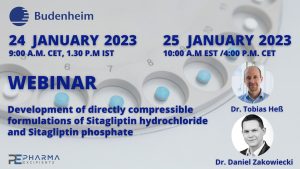Particle-Based therapies for antigen specific treatment of type 1 diabetes

Type 1 diabetes mellitus (T1D) is the leading metabolic disorder in children worldwide. Over time, incidence rates have continued to rise with 20 million individuals affected globally by the autoimmune disease. The current standard of care is costly and time-consuming requiring daily injections of exogenous insulin. T1D is mediated by autoimmune effector responses targeting autoantigens expressed on pancreatic islet β-cells. One approach to treat T1D is to skew the immune system away from an effector response by taking an antigen-specific approach to heighten a regulatory response through a therapeutic vaccine.
An antigen-specific approach has been shown with soluble agents, but the effects have been limited. Micro or nanoparticles have been used to deliver a variety of therapeutic agents including peptides and immunomodulatory therapies to immune cells. Particle-based systems can be used to deliver cargo into the cell and microparticles can passively target phagocytic cells. Further, surface modification and controlled release of encapsulated cargo can enhance delivery over soluble agents. The induction of antigen-specific immune tolerance is imperative for the treatment of autoimmune diseases such as T1D. This review highlights studies that utilize particle-based platforms for the treatment of T1D.
Read more
Nicole Rose Lukesh, Denzel D. Middleton, Eric M. Bachelder, Kristy M. Ainslie, Particle-Based therapies for antigen specific treatment of type 1 diabetes, International Journal of Pharmaceutics, Volume 631, 2023, 122500, ISSN 0378-5173,
https://doi.org/10.1016/j.ijpharm.2022.122500.
Our next webinar:
For free registration and more information click on the picture below or here:


